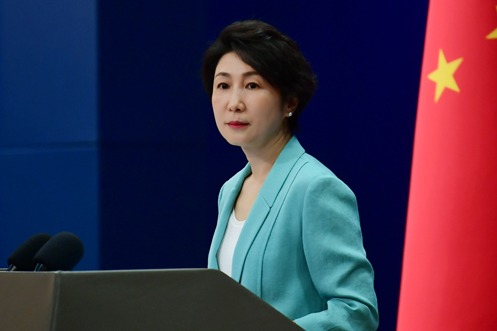Medical device makers face steep tariff losses

US medical device makers could lose $138 million this year as the result of the 25 percent US tariffs on Chinese imported goods that went into effect last week, which might cause some manufacturers to downsize and cut research and development.
"We estimate that the imposition of additional 25 percent duties will impact approximately $836 million worth of medical technology entering the US from China, including related component parts and manufacturing materials," Ralph Ives, executive vice-president of AdvaMed, a trade association in Washington, said on Friday.
The products affected by the tariffs include pacemakers, electrocardiographs, ultrasound machines, magnetic resonance imagers, computer tomography (CT) and X-ray scanners.
"These tariffs on imaging products or their components will harm the American medical technology sector's ability to stay competitive and will adversely affect the US economy in ways that could compromise patient access to care," said Patrick Hope, executive director of the Medical Imaging and Technology Alliance (MITA).
"The tariffs are estimated to cost American device makers more than $138 million this year. CT scanners and other X-ray device components, in particular, would be most significantly affected, according to the survey results," Hope added.
A survey conducted by MITA in May of a majority of US medical imaging industry members showed that 100 percent of manufacturers said they would invest fewer resources in research and development and 100 percent said they would reduce workforce if the tariffs were put into effect.
"One commenter said, 'The proposed tariffs on health care technology would harm US manufacturing competitiveness globally and decrease US exports, including, ironically, US exports to China,'" Hope said.
"Another said, 'A new tax would require this small company to lay off employees and also significantly raise the cost of healthcare as manufacturers will have to either cut R&D or pass on the 25 percent increase to the end users (healthcare providers)'," Hope continued.
He also mentioned that the issue of intercompany transfers noting that many products are imported from a manufacturer in China to a manufacturing facility in the US, where they are substantially transformed and then re-exported — often back to China.
"Taxing these products on both ends of one company's supply chain could create a disincentive for companies to manufacture in the US," he said.
Karan Bhati, president of government affairs at General Electric said in a statement: "While the vast majority of the parts that GE Healthcare uses in our US plants are made in the United States, GE also imports certain MRI machine parts — which contain high levels of US content — from our wholly owned GE factories in China."
GE's healthcare business employs 6,000 workers at its Wisconsin facilities, producing high-tech medical equipment, such as MRI machines.
"We think it is clear that placing tariffs on products made in a US-owned plant would generate no meaningful negotiating leverage with the Chinese government," Bhati said.
"The medical device is a vital export for the US," said Grace Fu Palma, CEO of China Med Device, a solution provider for US medical device companies to enter China. "Medical technology firms in the US currently sell about $6.6 billion annually to China, while the US imports from China a total of $5 billion in medical devices."
Medical devices ranked fourth after soybeans, aircraft and autos among all goods the US exported to China last year.
Although China has not included any medical devices in the first list of retaliatory tariffs, many US companies are worried about a more severe Chinese retaliation.
"About 25 percent of (GE MRI machines) are exported around the world, including to a growing market in China. In total, GE Healthcare exports $1.8 billion of complex medical equipment to customers around the world," Bhatia said.
"Though China has implemented its first list of retaliatory tariffs today on $34 billion worth of US exports to China, this list does not include medical technology devices. AdvaMed strongly opposes tariffs on medical technology by both sides," Ives said.
Contact the writer at ruinanzhang@chinadailyusa.com
































